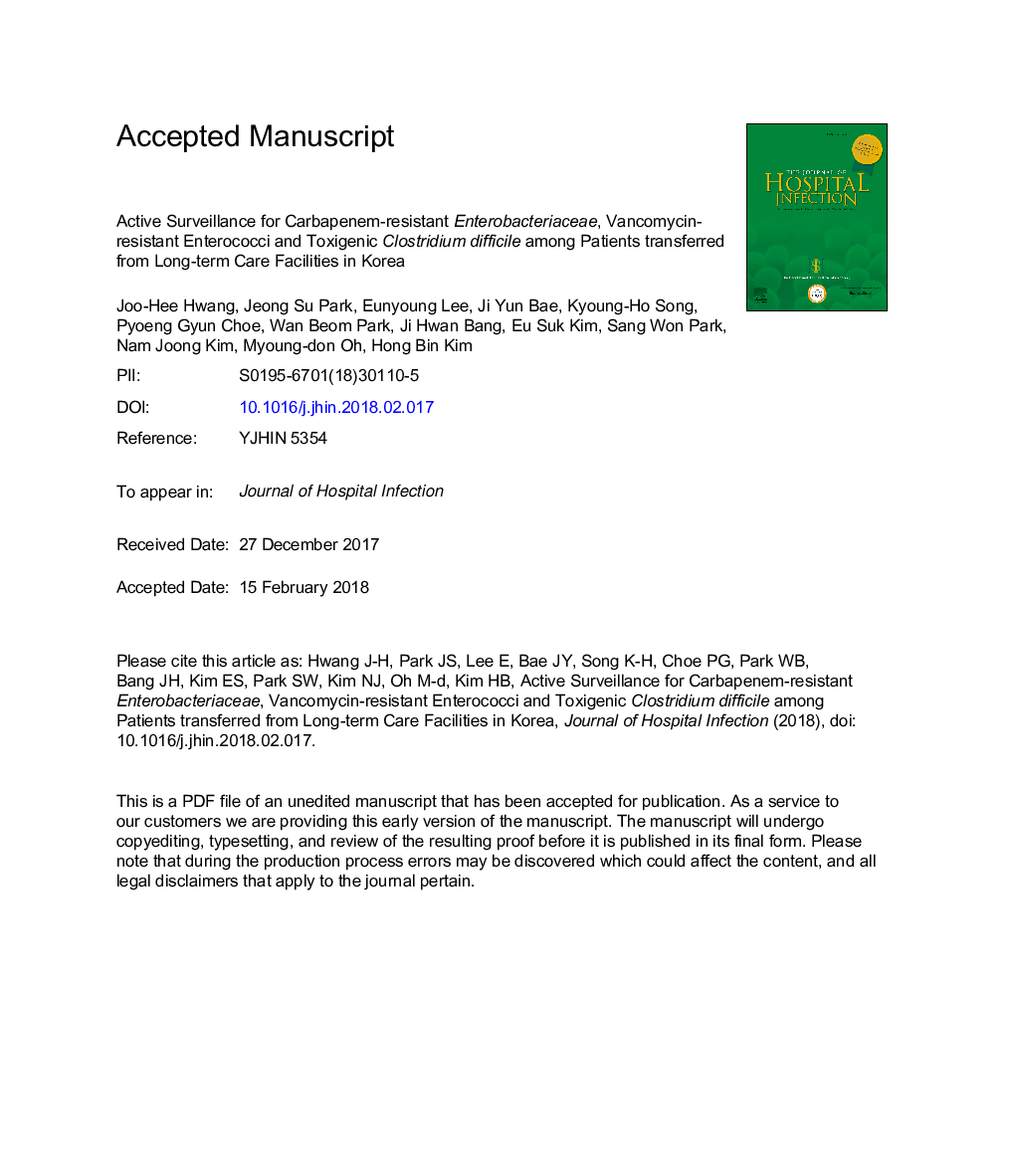| Article ID | Journal | Published Year | Pages | File Type |
|---|---|---|---|---|
| 8739944 | Journal of Hospital Infection | 2018 | 24 Pages |
Abstract
A 10-month active surveillance study was conducted to assess carriage of carbapenemase-producing Enterobacteriaceae (CPE), vancomycin-resistant enterococci (VRE) and toxigenic Clostridium difficile colonization among patients transferred to hospital from long-term care facilities (LTCFs). Four (1.4%) patients with carbapenem-resistant Enterobacteriaceae (none of which were CPE), 59 (21%) patients with VRE and 20 (7.1%) patients colonized with toxigenic C. difficile were identified from 282 rectal specimens. There was no outbreak of VRE infection during the study period. The low prevalence of CPE carriage suggests that screening all admissions from LTCFs for CPE would not be cost-effective, and that screening and use of contact precautions for VRE should be reconsidered.
Keywords
Related Topics
Life Sciences
Immunology and Microbiology
Applied Microbiology and Biotechnology
Authors
J-H. Hwang, J.S. Park, E. Lee, J.Y. Bae, K-H. Song, P.G. Choe, W.B. Park, J.H. Bang, E.S. Kim, S.W. Park, N.J. Kim, M. Oh, H.B. Kim,
